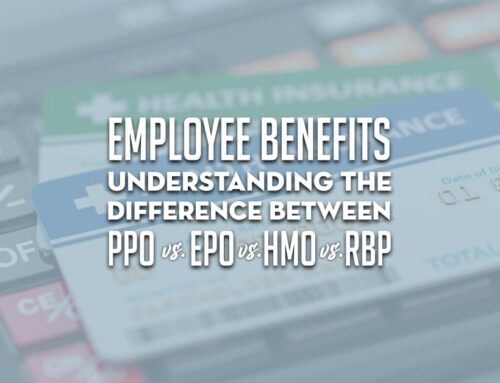Small business health insurance and other health benefits play a critical role in your recruitment since they help you attract top talents and retain your key employees. Unfortunately, budgeting them for your small business can be difficult.
Using the wrong approach and offering costly health benefits that fail to meet the expectations of your organization can leave a dent in your budget. To take control and make sure that you’re using the best possible strategy for your business, here are some health benefit mistakes you should avoid at all costs:
1. Spending too much time administering health benefits
Dealing with health benefits for your small business can take up too much of your time and budget. You can prevent this by switching to individual health insurance and premium reimbursement.
When you simplify with individual health insurance, you simply have to manage the reimbursement plan and allow your employees to be responsible for choosing and handling their own health insurance. Take advantage of the power of technology and use the right reimbursement software for your business to administer health benefits conveniently.
2. Failing to gain control of annual costs
Running a small business usually means having unpredictable annual costs, and this makes budgeting for health benefits for all employees challenging. Failing to gain control of the costs of your annual health benefits can affect your employee retention rate since you can’t confidently offer benefits in the long run.
Save your business from making this common mistake and take control of your budget by switching to individual health insurance and a premium reimbursement plan. This way, you can help your business change your budget on your terms, create a reliable budget for health benefits in the short-term and the long-term, and set contribution amounts toward your employees’ healthcare.
3. Ignoring compliance requirements
Your small business is required to follow various federal rules and regulations when you offer health benefits to your employees through a group health insurance plan or a premium reimbursement plan. Failing to comply with them or being unaware of them can lead to expensive penalties that can burn a hole in your pocket.
Avoid costly fines for being out of compliance by familiarizing yourself with the compliance requirements under the Employee Retirement Income Security Act of 1974 (ERISA), the Consolidated Omnibus Budget Reconciliation Act (COBRA), the Health Insurance Portability and Accountability Act (HIPAA), and the Affordable Care Act (ACA). Make sure to discuss with your broker or reimbursement software provider to ensure you are in compliance with the rules.
4. Failing to purchase at renewal time
The annual renewal process is required for businesses that offer employees group health insurance. This involves receiving a notice about premium changes for the next plan year. If you are facing health plan premium increases, look for more affordable plans and work with your broker to negotiate your premium rate.
Conclusion
Handling health benefits for your small business can be daunting, but by being aware of the common mistakes listed above and knowing how to prevent them, you can take control of your budget. Partner with a trusted insurance provider to offer an enticing health benefits package that won’t break the bank.
Here at Abbot Benefits Group, we have been offering company health insurance and other employee benefits for businesses in Texas for more than 30 years. Contact us to learn more about how we can help you!





